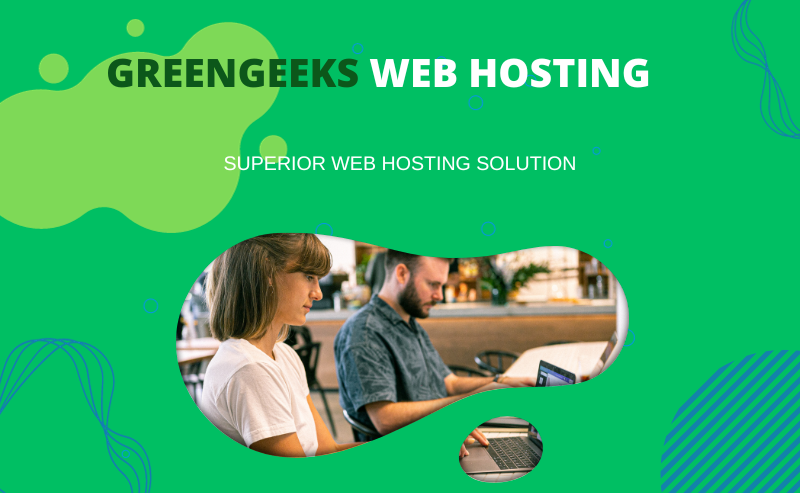When deciding between Medium and WordPress for content creation, it’s crucial to think about your goals and how comfortable you are with technology. Medium is user-friendly and easy to use, but it has fewer options for customization compared to WordPress. With WordPress, you have more freedom and control because of its wide range of plugins.
Moving content from Medium to WordPress or vice versa is relatively simple, but make sure to consider the advantages and disadvantages of each platform before making a decision. From an SEO perspective, WordPress offers more opportunities for optimization and plugins, making it a better choice for bloggers and website owners who want to improve their search rankings.
In terms of cost, Medium is free to use, while WordPress requires hosting fees. However, the extra features and customization options of WordPress may be worth the investment. When it comes to customization, WordPress surpasses Medium with its wide selection of themes, plugins, and code customization options. Take into account your design needs and preferences before making a choice.
Both Medium and WordPress have their strengths and weaknesses, so carefully evaluate your content hosting needs, goals, and budget to determine which platform is the most cost-effective solution for you. Also, consider A2 Hosting or BlueHost as potential alternatives because of their reliability and compatibility with WordPress.
What Are The Major Differences Between Medium and WordPress for Content Creation?
The major differences between Medium and WordPress for content creation are in their user experience, customization options, and monetization potential. Medium offers a simple and easy-to-use interface, allowing writers to focus on their content without technical concerns. WordPress, however, provides more flexibility and control for creating unique and personalized websites.
When it comes to monetization, Medium has a partner program where writers can earn money based on article engagement. However, this program is limited to select users and earnings can be unpredictable. In contrast, WordPress offers plugins and integrations that allow users to monetize their websites through ads, memberships, or e-commerce.
Ultimately, the choice between Medium and WordPress depends on your priorities. If simplicity and a built-in audience are important to you, Medium is a suitable option. However, if you value customization, control, and potential for monetization, WordPress, along with hosting providers like Bluehost or A2 Hosting, maybe a better fit for your content creation needs.
How Easy Is It to Migrate Content from Medium to WordPress, and Vice Versa?
Migrating content from Medium to WordPress, or vice versa, is relatively easy. Both platforms offer options for exporting and importing content. On Medium, you can export stories as HTML files and import them into WordPress with a plugin or the built-in importer. To move content from WordPress to Medium, export posts as XML files and import them into Medium.
However, there may be some formatting and styling differences between platforms that require manual adjustments. Certain features exclusive to one platform may not be fully supported during the migration.
Considering alternative hosting services like Bluehost or A2 Hosting could provide a better solution. These providers offer optimized WordPress hosting plans for fast and reliable performance. They also offer comprehensive customer support and additional tools to enhance your WordPress experience.
From an SEO Perspective, Should I Choose Medium or WordPress for My Blog or Website?
When choosing between Medium and WordPress for your blog or website from an SEO perspective, it’s essential to consider your specific needs and goals. Here’s a breakdown of both platforms:
1. Medium:
– Suitable if you prioritize simplicity and ease of use.
– Designed specifically for blogging and offers a user-friendly interface.
– Has a built-in audience, potentially attracting more readers to your content.
– However, customization options are limited, and you may have less control over your SEO strategy compared to WordPress.
2. WordPress:
– A versatile and highly customizable platform.
– Offers a wide range of themes, plugins, and SEO optimization tools.
– Provides full control over SEO settings, such as meta tags, URLs, and keyword optimization.
– Requires more technical expertise and maintenance compared to Medium.
Considering your goals, technical proficiency, and desired level of control is crucial before making a decision.
Additionally, exploring hosting options like Bluehost or A2 Hosting can further enhance your website’s performance and SEO capabilities.
What Are The Cost Differences When Using Medium vs WordPress to Host My Content?
The cost differences between using Medium and WordPress to host your content can vary depending on your specific needs and preferences. Here are the key points to consider:
– Medium:
– Free to publish your content, but with limited features.
– Paid membership ($5/month or $50/year) offers additional features like a custom domain, advanced analytics, and the ability to monetize your content.
– WordPress.com:
– Free to create and publish your content.
– Paid plans (starting at $4/month) offer benefits like removing advertisements, using a custom domain, and more control over design and functionality.
– WordPress.org (self-hosted):
– Requires purchasing a domain name and hosting plan from a third-party provider.
– Costs vary depending on the provider and package, typically starting at $3-5 per month.
In summary, while both Medium and WordPress offer free options for content hosting, the cost differences emerge when you need additional features and customization. Assess your specific needs and compare the pricing plans of different providers to find the most cost-effective solution for hosting your content.
Can You Compare The Customization Features of Medium and WordPress?
When comparing the customization features of Medium and WordPress, there are distinct differences.
WordPress provides a wide range of customization options, giving you full control over your website’s design and functionality. You can choose from thousands of themes and plugins to customize the appearance and extend the features of your site. Whether you want a simple blog or a complex e-commerce website, WordPress has the tools you need.
In contrast, Medium focuses on simplicity and ease of use. While it does offer some customization options, they are more limited compared to WordPress. With Medium, you can select from a few pre-designed templates and make minor adjustments to the layout and typography. However, if you’re seeking extensive customization options, WordPress is the better choice.
In conclusion, if you value flexibility and complete control over your website’s customization, WordPress is the ideal platform for you. However, if you prefer a simplified and hassle-free experience, Medium can still provide a decent level of customization within its limitations.
Medium vs WordPress: Which Platform Best Suits Your Content Creation Needs?
Medium vs. WordPress represents a crucial decision for content creators, each offering distinct advantages tailored to different needs and goals. Medium stands out for its simplicity and built-in readership, ideal for those who want to write and publish with minimal fuss. WordPress, on the other hand, excels in customization and control, catering to users who desire a robust platform for SEO optimization and extensive monetization options.
When considering costs, Medium’s free model offers basic services, while WordPress can be free or come with additional expenses depending on whether you opt for WordPress.com or self-hosting through services like Bluehost or A2 Hosting. Choosing between these platforms requires careful evaluation of your long-term objectives, technical comfort level, and budget constraints.
Ultimately, whether you are a blogger seeking a straightforward publishing tool or an entrepreneur building a branded online presence, the choice comes down to the balance between ease of use and the freedom to create a unique digital space. By weighing their differences in user experience, SEO potential, cost implications, and customization capabilities, you can make an informed decision that aligns with your individual content creation journey.

